Firstly, I want to announce that the initial manuscript for my second novel, “Unto Persephone,” has just been completed, and I will soon be descending into madness, rage, and alcoholism, i.e. editing. I know just from my initial impressions on the manuscript that the book was already written with more experience than my first novel, and thus is already at a higher standard. I also know that my own standards have been raised, and I should hope my reader’s expectations have followed suit.
While I was writing the last several thousand words to “Unto Persephone,” I found that I reached a good mental state while listening to music, which helped push me along to the last period. I know I’ve mentioned music and writing before, but I wanted to go into more depth on the topic, sharing my feelings on why the two often mesh and why, sometimes, it’s better to turn the music off and listen to the silence.
Unless you're a zombie, the simple fact is that music evokes emotion. Generally, if that emotion matches the mood of the scene you're writing, of the picture you're painting, you'll find yourself enveloped and involved. In my experience, good music pairs with writing like a cigar pairs with a Scotch. The two compliment one another; the more you have of one, the more you want the other, and the next thing you know you've cranked out several thousand words without even fretting about it.
An even more profound effect can be found in the way that music can highlight certain mental images, giving color and shape to otherwise abstract concepts. As an example, there was a specific song that encapsulated the mood I was trying to develop with the main character of my first novel, Jupiter Symphony. Any time I listened to this song, I could picture this character in my head, not just physically, but also mentally and emotionally. It encapsulated his ethos, and allowed me to really flesh out the character, making him leap off the page as he was formed from more than one medium.
As an added benefit, music can help to inspire. In times when I was struggling to find a direction for the plot or I was failing in my resolve to keep writing, the right album or playlist could help recapture the mood, conjuring up the emotions that needed to be expressed and committed to text. Music allowed me to keep going when I wanted to quit, gave me guidance when I was lost, and in general kept me sane when I wanted to delete my novel and start over.
By the same token, however, writing while listening to music comes with its own set of warning labels and downsides. To refer again to my cigar and Scotch pairing, there are certain combinations that just don't work. If the music you're listening to is in stark contrast to the mood of the scene you are composing, you may quickly find the notes degrading into nothing more than a huge distraction, no longer contributing, only adding noise to an already taxed brain. This also goes for instances when your writing has stalled and you're seeking a direction. If the music isn't getting you anywhere, it's probably time to either call it a night and just listen, or else turn off the music and dedicate yourself to your craft. The trick is in finding the balance between using music and appreciating silence.
The truth people don't want to admit is this: the ability to concentrate on a task in silence is an admirable skill, one that can be difficult to cultivate. In truth, though, this is just as powerful a tool as music, and should be placed in the toolboxes of writers everywhere. You may swear by your playlist, your soundtrack to your life, but there will come a time and a place where it will serve to do nothing other than to distract you. You may not notice it immediately, but you certainly will during your rewrites. Then there are the times you will find yourself struck by inspiration and ready to write, but with no music available (rare in 2014, but believe me, it happens). In these instances, the ability to sit and simply write demonstrates the mark of someone dedicated to their work.
So, in closing, I will say that music, along with other forms of art, is intrinsically linked to writing. It involves our passions, emotions, ideals and concepts, striking at the elements of our soul that we can sometimes have difficulty tapping into when we need to express ourselves. Always know, though, where the music is taking you. Be sure you are the on leading that dance, and that you are still moving forward in your work as an author.
A.C. Harrison
Like what you see here? Spread the word and support indie authors! Follow me on Facebook or Twitter. Find me on Smashwords and Kindlemojo.
While I was writing the last several thousand words to “Unto Persephone,” I found that I reached a good mental state while listening to music, which helped push me along to the last period. I know I’ve mentioned music and writing before, but I wanted to go into more depth on the topic, sharing my feelings on why the two often mesh and why, sometimes, it’s better to turn the music off and listen to the silence.
Unless you're a zombie, the simple fact is that music evokes emotion. Generally, if that emotion matches the mood of the scene you're writing, of the picture you're painting, you'll find yourself enveloped and involved. In my experience, good music pairs with writing like a cigar pairs with a Scotch. The two compliment one another; the more you have of one, the more you want the other, and the next thing you know you've cranked out several thousand words without even fretting about it.
An even more profound effect can be found in the way that music can highlight certain mental images, giving color and shape to otherwise abstract concepts. As an example, there was a specific song that encapsulated the mood I was trying to develop with the main character of my first novel, Jupiter Symphony. Any time I listened to this song, I could picture this character in my head, not just physically, but also mentally and emotionally. It encapsulated his ethos, and allowed me to really flesh out the character, making him leap off the page as he was formed from more than one medium.
As an added benefit, music can help to inspire. In times when I was struggling to find a direction for the plot or I was failing in my resolve to keep writing, the right album or playlist could help recapture the mood, conjuring up the emotions that needed to be expressed and committed to text. Music allowed me to keep going when I wanted to quit, gave me guidance when I was lost, and in general kept me sane when I wanted to delete my novel and start over.
By the same token, however, writing while listening to music comes with its own set of warning labels and downsides. To refer again to my cigar and Scotch pairing, there are certain combinations that just don't work. If the music you're listening to is in stark contrast to the mood of the scene you are composing, you may quickly find the notes degrading into nothing more than a huge distraction, no longer contributing, only adding noise to an already taxed brain. This also goes for instances when your writing has stalled and you're seeking a direction. If the music isn't getting you anywhere, it's probably time to either call it a night and just listen, or else turn off the music and dedicate yourself to your craft. The trick is in finding the balance between using music and appreciating silence.
The truth people don't want to admit is this: the ability to concentrate on a task in silence is an admirable skill, one that can be difficult to cultivate. In truth, though, this is just as powerful a tool as music, and should be placed in the toolboxes of writers everywhere. You may swear by your playlist, your soundtrack to your life, but there will come a time and a place where it will serve to do nothing other than to distract you. You may not notice it immediately, but you certainly will during your rewrites. Then there are the times you will find yourself struck by inspiration and ready to write, but with no music available (rare in 2014, but believe me, it happens). In these instances, the ability to sit and simply write demonstrates the mark of someone dedicated to their work.
So, in closing, I will say that music, along with other forms of art, is intrinsically linked to writing. It involves our passions, emotions, ideals and concepts, striking at the elements of our soul that we can sometimes have difficulty tapping into when we need to express ourselves. Always know, though, where the music is taking you. Be sure you are the on leading that dance, and that you are still moving forward in your work as an author.
A.C. Harrison
Like what you see here? Spread the word and support indie authors! Follow me on Facebook or Twitter. Find me on Smashwords and Kindlemojo.

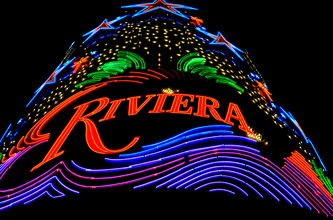
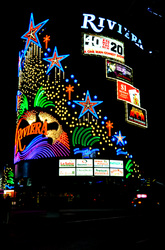






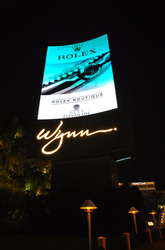


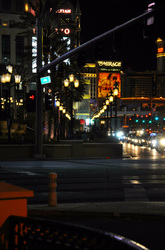


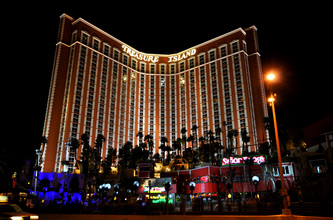



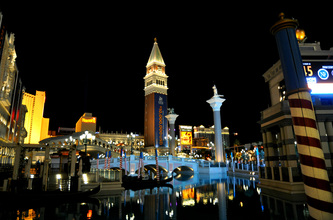

 RSS Feed
RSS Feed